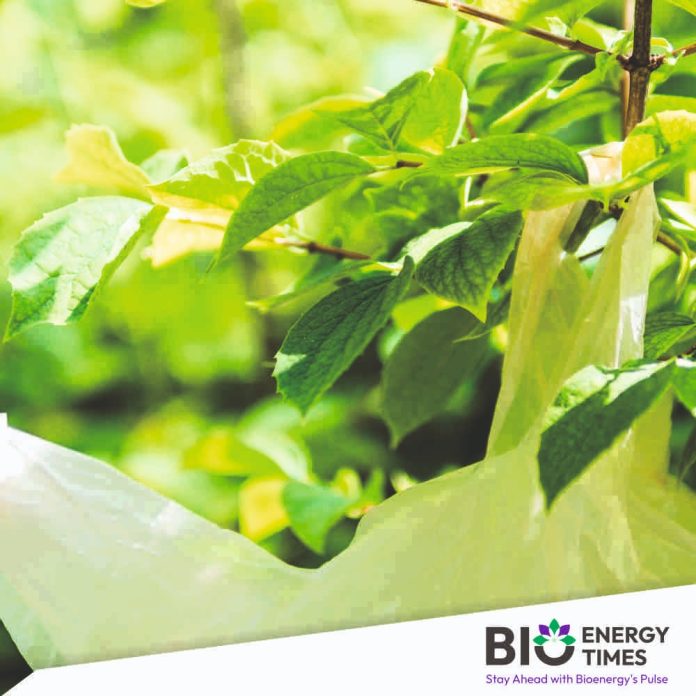As plastic waste continues to accumulate in urban areas, innovative approaches under the Swachh Bharat Mission-Urban are not only addressing the issue but also turning it into a valuable opportunity. Urban India is increasingly adopting technology, engaging citizens, and promoting circular economy models to create plastic-free alternatives.
Once synonymous with convenience, plastic has now become a major environmental threat. Cities across India are tackling plastic waste through solutions focused on recycling, reuse, and recovery under the RRR (Reduce, Reuse, Recycle) model, contributing to the strengthening of the circular economy. Local bodies are combining infrastructure, technology, and community engagement to foster sustainable, plastic-free living. Driven by the values of Swabhav, Swachhata, and Sanskar, the Mission is sparking grassroots change and aligning with India’s Sustainable Development Goals.
In Tripura, Kamalpur Nagar Panchayat has taken a significant step towards sustainability by introducing compostable bags made from PBAT, a biodegradable, chemical-free polymer, as an alternative to single-use plastics. Certified by CIPET for compostability and biodegradability, these eco-friendly bags decompose within 180 days—offering a more practical solution compared to conventional plastics that can take centuries to degrade. Priced affordably at ₹145/kg wholesale and ₹160/kg retail, these bags are becoming increasingly popular. The Panchayat is also actively engaging with the community to promote their use and encourage responsible waste management for a more sustainable future.
In Trichy, the City Corporation, in partnership with GIZ India’s Circular Waste Solutions project, launched a focused campaign in 2022 to combat the use of Single-Use Plastics (SUP) in local markets, despite the ongoing ban. The campaign targeted specific farmer markets in Tennur, K.K. Nagar, and Woraiyur, engaging 220 vendors in education about the environmental harm caused by SUPs. The initiative encouraged vendors to switch to sustainable alternatives and promoted the use of reusable cloth bags among shoppers. As a result, the Tennur market reduced SUP usage by 2,200 kg over the year, K.K. Nagar avoided 620 kg in four months, and Woraiyur saved 300 kg in just six months.
A pioneering Digital Deposit Refund System (DRS), introduced in Kedarnath in May 2022, addresses plastic waste in the Char Dham region by offering financial incentives for responsible disposal. Shoppers pay a ₹10 refundable deposit on plastic bottles and multilayered plastics (MLPs), which are tracked through QR codes provided to registered shops. Consumers return the used packaging at designated collection points or Reverse Vending Machines (RVMs), and the waste is then sent to Material Recovery Facilities (MRFs) for recycling. Since its expansion to Gangotri, Yamunotri, and Badrinath, the initiative has recycled 20 lakh plastic bottles, prevented 66 metric tons of CO₂ emissions, created over 110 jobs, and increased the earnings of informal waste workers by 37.5%.
In the Andaman and Nicobar Islands, a buy-back initiative was launched to encourage the return of used plastic milk pouches. Collaborating with ANIIDCO and SVPMC, collection points were set up where consumers could exchange used pouches for rewards such as fresh milk or discounts. This initiative has been complemented by public awareness campaigns that promote recycling and responsible waste management. By November 2024, 17,600 milk pouches had been collected, rewarding residents with 352 liters of milk, while also fostering long-term environmental awareness and sustainable practices at the grassroots level.
In Patiala, the Plastic Recycling Facility (PRF), established under CSR initiatives, focuses on processing low-value plastic waste by converting multilayered plastics (MLPs) into durable chipboards using both hot and cold pressing technologies. These eco-friendly chipboards, which serve as a substitute for plywood, are used in various applications such as furniture, roofing, and temporary shelters. With a daily processing capacity of 10 tonnes, the facility produces 75 to 100 chipboards, contributing to infrastructure projects and supporting a circular economy by reducing landfill waste and promoting resource efficiency.
India’s plastic waste management efforts are rapidly evolving into a collaborative, multi-stakeholder approach. Governments, cities, startups, and citizens are working together to implement scalable solutions, promote sustainable practices, and strengthen recycling initiatives to support the transition to a circular economy.















